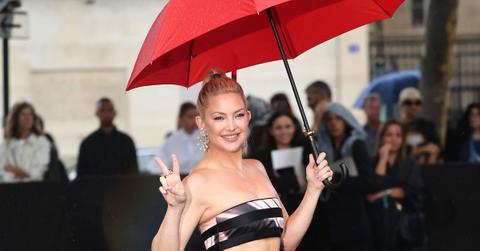Fans Are Tired of Industry Plants and Nepotism Babies, but They Can't Stop Them
We all loved watching 'Hannah Montana,' but that doesn't make Miley Cyrus less of a nepotism baby, right? What about an industry plant?
Published Feb. 14 2024, 10:51 p.m. ET

The entertainment industry is brutal, especially when you're competing against people with an unfair advantage. Speculation about manufactured success has grown recently, resulting in a lot of chatter about industry plants.
Management companies, record labels, and movie studios are all looking for a way to discover the next big name, but fans have noticed some suspicious patterns popping up around their new favorite stars.

What is an industry plant?
When someone seems to be "planted" in an industry, mainly entertainment, it means that they didn't quite find their success organically. Instead, someone in the management world manufactured the star's image and strategically debuted them under the pretense that they were self-made. After all, admitting that you got a leg up isn't quite relatable or likable.
Industry plants were very common in the pre-internet era as entertainment institutions were largely inaccessible to your average person. It would take wealth and connections, rather than a lucky demo, to make a pop star.
When the internet, especially YouTube, rose to prominence, people were able to share their talents with the world without going through entertainment executives. Stars like Justin Bieber and Troye Sivan were able to reach larger audiences and cut out the middleman.
The entertainment industry eventually started to sign these individuals and capitalize on the fame that came from their existing followers. This pattern squashed industry plants, but only for a short time.
Eventually, the entertainment world realized that social media was here to stay and social media marketing became a niche field that expertise realized could also be manufactured. Even influencers, who were long believed to be self-made, became content creators who certainly can strategically become big by being handed the right connections, events, and brand partnerships.
Thus, entertainment returned to the realm of industry plants, but utilized social media to do so. This time, though, fans were much more aware about what was happening and started to call it out. They often brand certain stars as 'industry plants' whether correctly or not.
It's often more glaring when it comes to inserting stars into niche subcultures, especially the alternative scene. For example, in 2021, an all-women band called Tramp Stamps on TikTok was harshly ridiculed.
The band claimed to be independent artists, but the internet simply didn't believe them. Although they claimed to be small and independent, their website and social media pages seemed a bit too high quality compared to other small artists. Plus, they thought that the music they were producing seemed fake and was written in a machine-like way, stuffed with keywords, to appeal to the emo demographic.
Fans eventually figured out that they had existing ties in the industry, including to Dr. Luke who was accused of sexually assaulting Kesha. Nonetheless, the band angrily maintained that they were independent and under a record label they created, Make Tampons Free.
However, their label was tied to a parent company called AWAL which is owned by Kobalt Music. By this point, fans weren't shocked to learn that Kobalt was actually a massive company in music publishing.
Fans have long believed that entertainment companies favor industry plants, in part, because of their connections, but also because they can be easier to control and more predictable than taking a chance on people from outside the Hollywood bubble.